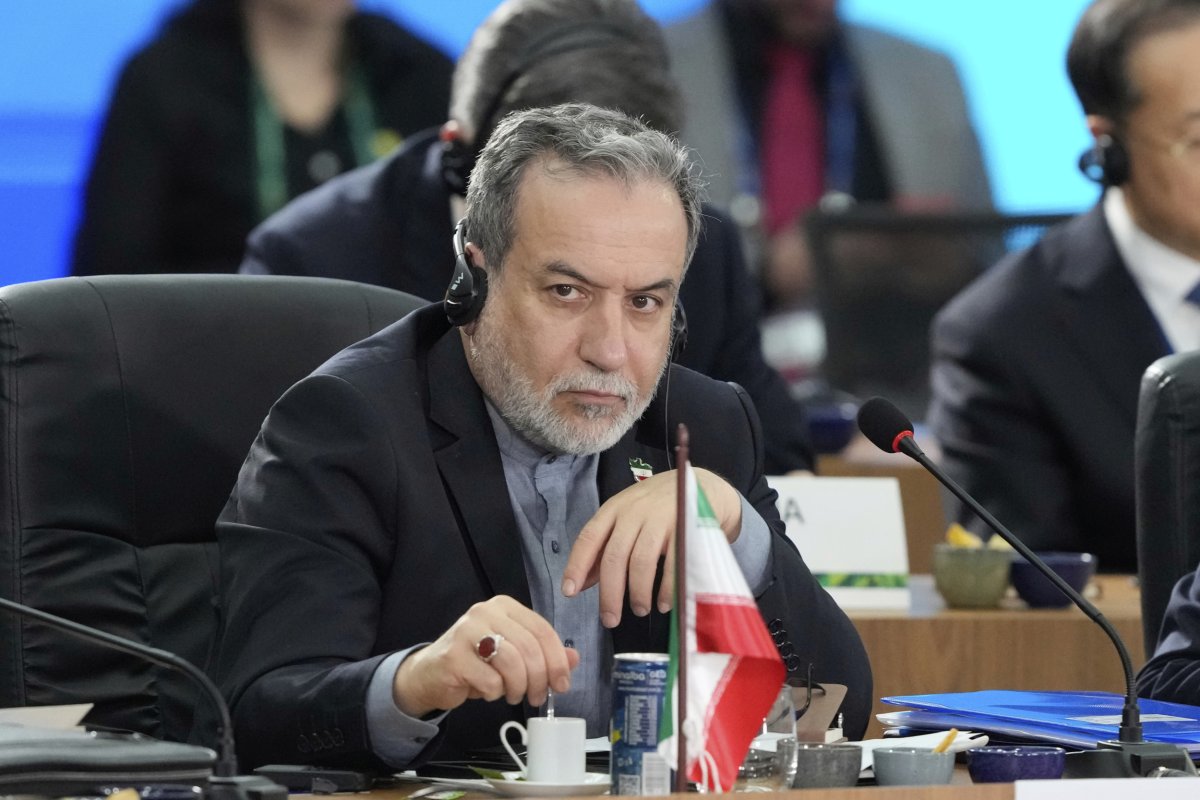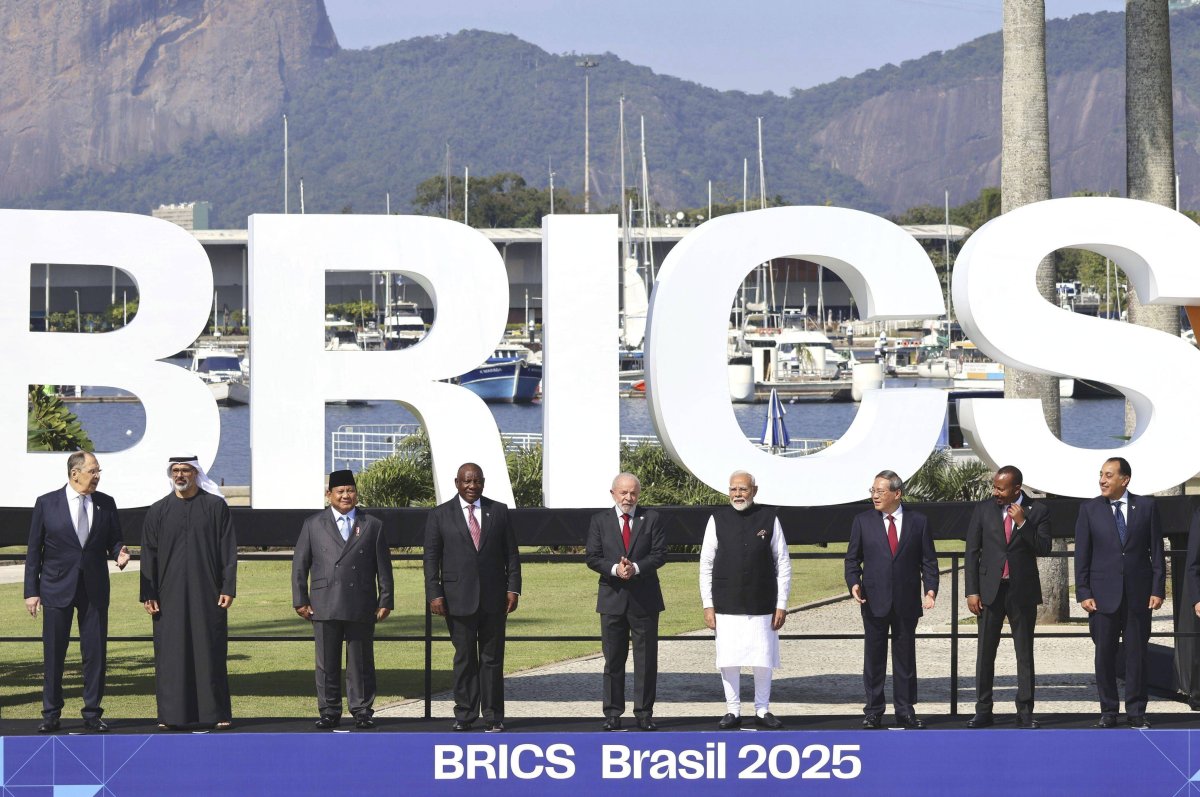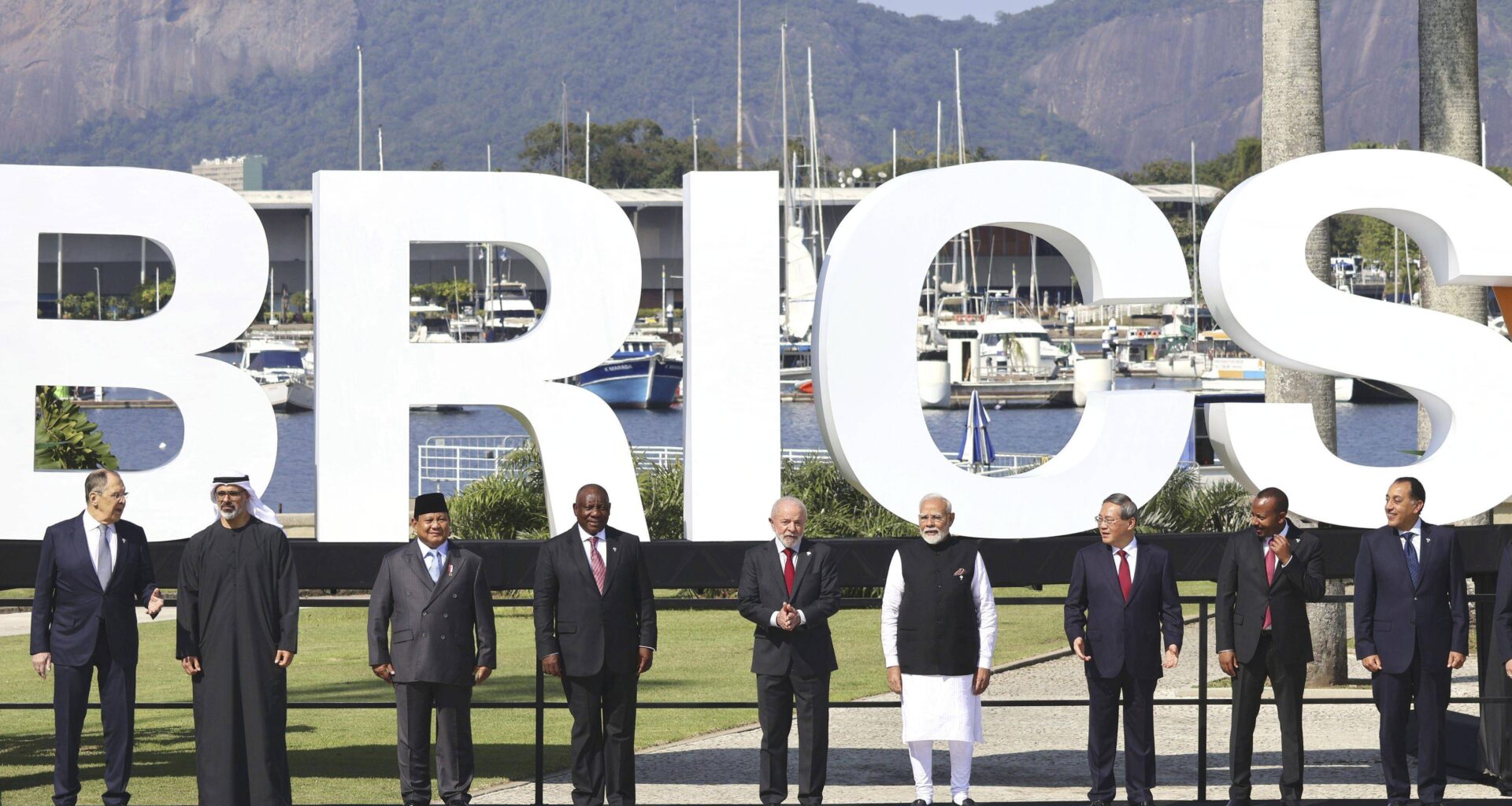Iran received a major diplomatic boost at the BRICS summit in Brazil, where the group of emerging powers condemned recent airstrikes on Iranian territory. In a joint statement, the bloc criticized “the military strikes against the Islamic Republic of Iran,” referring to attacks by Israel and the United States.
Foreign Minister Abbas Araghchi attended in place of President Masoud Pezeshkian, who canceled after the strikes. While the joint statement stopped short of naming the U.S. or Israel, it marked BRICS’ strongest rebuke to date. China and Russia both signaled alignment, with Moscow calling the strikes “unprovoked.”
Newsweek has reached out to the State Department for comment.
Why It Matters
The unified position taken by BRICS—now expanded to include Iran—signals growing alignment among non-Western powers in resisting U.S.-led interventions. For Tehran, the support comes at a critical time, as it seeks international recognition of what it views as unlawful aggression against its sovereignty and nuclear infrastructure. Iran has long struggled to break out of diplomatic isolation. Its full membership in BRICS, coupled with a shared declaration of solidarity, may strengthen its ability to challenge the Western narrative in global forums such as the United Nations and the International Atomic Energy Agency.

Iranian Foreign Minister Abbas Araghchi attends the 17th annual BRICS summit in Rio de Janeiro, Sunday, July 6, 2025.
Iranian Foreign Minister Abbas Araghchi attends the 17th annual BRICS summit in Rio de Janeiro, Sunday, July 6, 2025.
Eraldo Peres/AP Photo
What to Know
The Iranian delegation pushed for strong language on the attacks that targeted nuclear facilities. The final declaration condemned those strikes and emphasized that “attacks on critical infrastructure and nuclear facilities are unacceptable under international law.” Araghchi used his speech to press for accountability, stating that both Israel and the U.S. should be held responsible for human rights violations. He warned the fallout from the war “will not be limited” to Iran alone.
Posting on X after the summit, Araghchi shared photos from the gathering and said Iran was “grateful for the strong and unequivocal condemnation” of Israeli and U.S. strikes.
Iran is grateful for the strong and unequivocal condemnation by BRICS of the recent Israeli and US military aggression. In no uncertain terms, the deliberate attacks on Iranian civilian infrastructure and nuclear sites under IAEA safeguards violate both international law and… pic.twitter.com/xJTcJYw2hw
— Seyed Abbas Araghchi (@araghchi) July 7, 2025
Russia and Iran’s Bilateral Meeting
Araghchi met with Russian Foreign Minister Sergey Lavrov on the sidelines of the summit. According to Russian media, Lavrov renewed Moscow’s offer to mediate and reiterated support for Iran’s right to develop peaceful nuclear energy. Russia’s Foreign Ministry later issued a statement on Telegram naming both Israel and the U.S. in its condemnation of the “unprovoked military strikes” on Iran.
What People Are Saying
Iranian Foreign Minister Abbas Araghchi: “In no uncertain terms, the deliberate attacks on Iranian civilian infrastructure and nuclear sites under IAEA safeguards violate both international law and norms, the influential group of countries agree.”
Russia’s Foreign Ministry: “We condemn the ‘unprovoked military strikes’ against Iran.”
BRICS joint statment: “We condemn the military strikes against the Islamic Republic of Iran since June 13, 2025, which constitute a violation of international law and the Charter of the United Nations, and express grave concern over the subsequent escalation of the security situation in the Middle East.”
What Happens Next
With support from BRICS, Iran is expected to escalate its calls for a formal investigation through the U.N. Security Council and the IAEA. Tehran may also push for new security assurances from Russia and China. As BRICS continues to evolve into a more coordinated political bloc, Iran’s integration could reshape future responses to regional conflicts involving Western powers.

Leaders take part in a photo session for the annual BRICS summit in Rio de Janeiro on July 6, 2025.
Leaders take part in a photo session for the annual BRICS summit in Rio de Janeiro on July 6, 2025.
Kyodo/AP Photo
